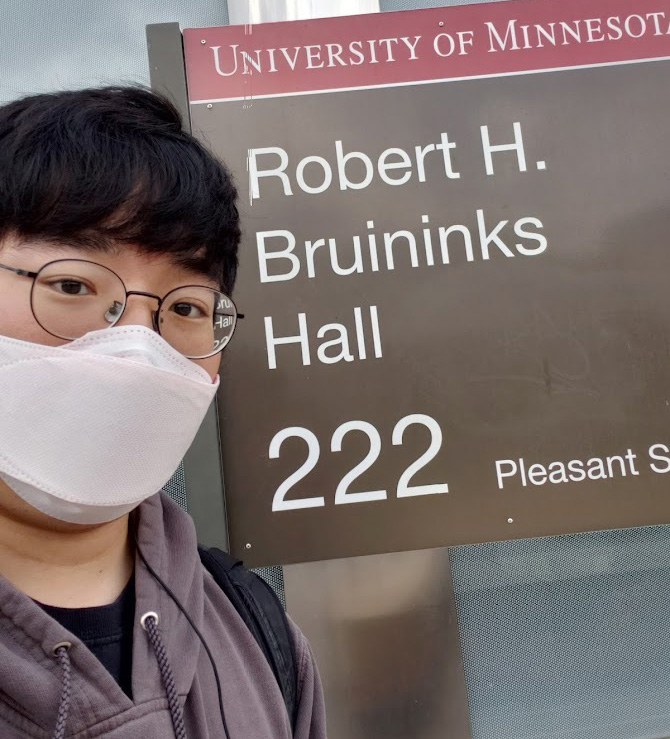Image: Hansu Jeong, an international student from South Korea, was not able to go back home for a year due to the country’s quarantine mandate that has been in effect since the pandemic started. He stood in front of Bruininks Hall for a selfie in Minneapolis, Minnesota. (Courtesy of Hansu Jeong)
Students say they still face language barriers, the need for financial support and pressure to make friends, but those stresses are now greater.
By Jihwan Paik
The pre-pandemic mental health needs of the University of Minnesota’s international students have intensified since the onset of COVID-19, according to counselors and students themselves.
Studying abroad was stressful to many international students during the pandemic due to language barriers, the need for financial support or the pressure to make friends, the students say.
Eric Kroetsch, a senior academic advisor at the University’s International Student and Scholar Services (ISSS), said these stressors were present prior to the pandemic, but are now impacting students at a higher level.
International students whose mental health challenges were exacerbated by financial or language difficulties tended to have more difficulties during the pandemic, if, for example, their families lost sources of income or online classes required more advanced language skills.
Some international students did not notice any difference in their stressors during the pandemic.
“I did not experience any other stressors when the school went fully online, though I wish I had gone back to South Korea for the summer,” said Hansu Jeong, who is a fourth-year at the University.
Yeongheon Jung, another international student from South Korea, said that the only new stress factor he experienced during the same period was “the slightly increased level of loneliness.”
COVID-19 did bring some new difficulties that challenged the mental health of international students.
There was xenophobia arising from anti-Asian sentiment early in the pandemic, according to a study conducted in 2020 by Krista Soria, an analyst with the Office of Institutional Research at the University of Minnesota.
